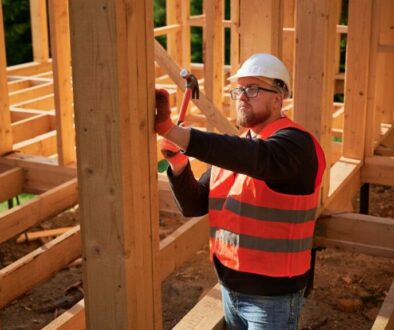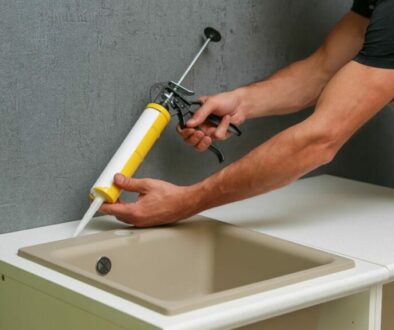What Are Drilling Skills?
Drilling skills are essential for a range of jobs, particularly those in the oil and gas industry. Drilling refers to the process of creating holes in the earth to access natural resources like oil, gas, and water. Drilling skills involve the knowledge, techniques, and experience required to operate and maintain drilling equipment, as well as to identify and address drilling-related challenges as they arise.
Drilling Skills Examples
Drilling is a specialized field that requires a unique set of skills and expertise. The drilling industry is constantly evolving, and drilling professionals must stay up-to-date with the latest technology and techniques to remain competitive in the field. Here are a few more examples of drilling skills that are essential for success on the job:
- Geology: Understanding the geology of the area where drilling is taking place is crucial for drilling success. Drilling professionals must be able to analyze geological data to determine the best location for drilling and to identify potential hazards.
- Mathematics: Drilling involves complex mathematical calculations, including calculating the volume of the hole being drilled, determining the amount of drilling mud needed, and measuring the amount of rock cut by the drill bit. Successful drilling professionals must have a strong foundation in mathematics.
- Safety: Drilling is a dangerous job, and safety is of utmost importance. Drilling professionals must be trained in safety procedures and must be able to identify and mitigate potential hazards on the job site.
- Environmental awareness: Drilling can have a significant impact on the environment, and drilling professionals must be aware of the potential environmental risks associated with their work. They must be able to identify and implement measures to minimize the impact of drilling on the environment.
- Project management: Drilling projects can be complex and involve multiple stakeholders. Successful drilling professionals must be able to manage projects effectively, including coordinating with other professionals, managing timelines and budgets, and ensuring that all project goals are met.
- Adaptability: Drilling jobs can be unpredictable, and drilling professionals must be able to adapt to changing circumstances quickly. They must be able to think on their feet and come up with creative solutions to unexpected challenges.
These are just a few examples of the many skills that are essential for success in the drilling industry. Whether you are just starting out in the field or are a seasoned professional, it is important to continue developing your skills and staying up-to-date with the latest technology and techniques.
How Do You Improve Drilling Skills?
Another important aspect of improving drilling skills is gaining a deep understanding of the geological formations and other environmental factors that can impact drilling operations. This knowledge can help drilling professionals make informed decisions about equipment selection, drilling techniques, and safety procedures.
Networking with other drilling professionals can also be a valuable way to improve skills. Attending industry conferences and events can provide opportunities to meet and learn from other drilling professionals, as well as to gain exposure to new technologies and techniques.
Physical fitness and proper equipment maintenance are also important factors in improving drilling skills. Drilling can be a physically demanding job, and staying in good physical condition can help prevent injuries and improve job performance. Regular maintenance of drilling equipment can help ensure that it operates efficiently and effectively, reducing downtime and increasing productivity.
Finally, developing strong communication and teamwork skills is essential for success in the drilling industry. Effective communication between drilling professionals, clients, and other stakeholders can help ensure that projects are completed on time and within budget. Working collaboratively with other members of a drilling team can also help improve efficiency and safety on the job.
Why Do Employers Look For Drilling Skills?
Drilling skills are highly sought after in a variety of industries, and for good reason. The ability to drill efficiently and effectively can lead to a diverse range of opportunities and rewarding careers.
One of the most exciting aspects of having drilling skills is the chance to work on projects all over the world. From the deserts of Saudi Arabia to the frozen tundra of Alaska, drilling professionals are needed in a range of environments and climates. This provides an opportunity for travel and adventure that is hard to find in other careers.
But it’s not just the thrill of travel that makes drilling skills valuable. These skills are also versatile and can be utilized in a range of industries beyond oil and gas. For example, construction companies often need drilling professionals to help with foundation work, while mining operations require drilling to extract valuable resources from the earth.
In addition to the job opportunities and versatility, drilling skills can also lead to financial benefits. Skilled drilling professionals are in high demand, and companies are willing to pay top dollar for their expertise. This means that those with drilling skills can enjoy well-paying careers and financial stability.
Overall, the demand for skilled drilling professionals is only expected to increase in the coming years. As technology advances and new drilling techniques are developed, the need for professionals who can operate and maintain drilling equipment will continue to grow. By developing and improving their drilling skills through training, education, and hands-on experience, aspiring drilling professionals can position themselves for successful and fulfilling careers in this exciting and challenging field.




